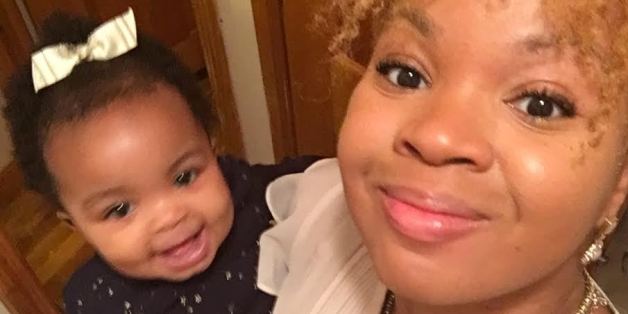[ad_1]

When I was pregnant with my daughter, I was asked a lot of the usual questions. When are you due? Are you having a boy or a girl? Is this your first baby? But there was one question that could really make my skin crawl, because it hit on a subject so insidious and deeply rooted in the black community’s warped beauty ideals that I could only politely smile to acknowledge it while cringing inside: What color do you think she will be?
It’s really a simple question, and one that I am sure was never asked out of malice towards my partner, my unborn child or myself. I am sure that it was asked out of curiosity, since I have light skin and my partner’s skin is dark. I am sure, to the person asking the question, it felt as pedestrian as asking what color I planned to paint the nursery. Still, it stung like a bee because, as a woman of color, I have been told all my life how pretty I am because of my light skin, or how easy life would be for me because of the privilege that comes with being able to pass the “brown paper bag test.”
So whenever I was asked that question, I could feel it suck the joy right out of my pregnant bliss because it made me realize that the world I live in cares about the color of my baby’s skin more than her health or happiness. It made me realize the color of her skin would forever be tied to how society — even those of her own race — would treat or view her. My response to this question was always something like, “Well, I think she will be a good mix,” or, “I am curious, too.” Sometimes, I would smile weakly and make a sad attempt to change the subject by saying something like, “I also can’t wait to see her personality because hopefully she’s easygoing like her dad and not stubborn like me.” (Insert another weak smile and an even weaker laugh.)
But each time I was asked this question — which was a lot — I would ponder: Why should the color of her skin matter? Would my unborn child be considered any less beautiful if her skin wasn’t light like my own? That’s when, one day while sitting and rubbing my growing pregnant belly, the worst thought I ever had about my unborn child hit me: I hope her skin isn’t dark.
Even though I caught myself before that thought could take root and grow into something much uglier, the shame I felt was immediate for wishing such a thing, because it implied that my black unborn child would be “less than” if her skin was “too dark.” And if society has taught me anything, it’s that the scrutiny the black community places on its own people can be just as critical and even more hurtful than what could ever come from others.
I can remember feeling that exact discomfort as I watched black people tear Beyoncé and Jay Z’s baby Blue Ivy apart for not having loose, curly hair. It seemed no one felt comfortable seeing a black baby live life looking the way nature intended her to look, and it hurt me to know that this fate could come the way of any black baby who didn’t pass the paper bag test. My black baby, before even taking her first step or saying her first word, could be viewed as “less than” because of the texture of her hair or the color of her skin.
So while I champion the Black Lives Matter movement, rejoice over the use of the phrase “black girl magic” and admire the carefree black boy or girl spirit — I can’t help but think about the other narrative. One that’s still woven so deeply into our tapestry from the Jim Crow, cotton-picking days that my Southern relatives endured, which tells us that while black is beautiful, some shades are more beautiful than others. It’s a worry I have not just for my daughter, but for all babies of color who will one day grow up into adults. I hope we can teach them to take pride in their skin color and its uniqueness, no matter the shade.
[ad_2]
Source link





















